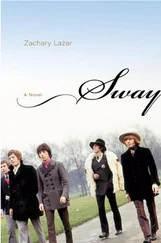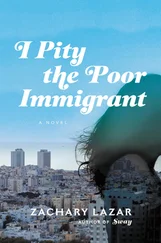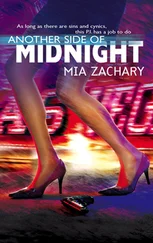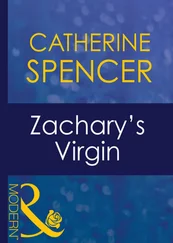*
I met Ken in Ohio. At the bar where I worked there was a regular customer who was thirty-something. She would show up from time to time, order a pint of the local amber, sit at the corner table, and stare blankly at one of the TVs. I didn’t know her name. I remembered her face, just like I remember the faces of everyone who has ever ordered something from me. So one night she showed up with someone. He had light blue, glazed eyes and a receding hairline. He was a little chubby and wore a shirt buttoned-up to the top with no tie. She ordered the usual brew, he — a Coca-Cola. He attempted to pay the bill but she stopped him and firmly paid for her own drink, which made him uncomfortable, I think. Then, she made the surprising move of introducing us to each other. My name was obvious to everyone because it was pinned on my vest, but she created the illusion for him that she had known me for a long time. His name was Ken. Hers was still unknown to me. Pleased to meet you, pleased to meet you. They sat at the most distant table and for a while I forgot about them. In an hour, she came to the bar and thanked me for being so kind to her. I glanced at Ken over her shoulder and noticed that he was staring at the glass between his nervous palms. I suspected, by now, that his Coke had warmed up like a cup of bad coffee. She introduced herself — Linda — and explained that she had met the guy just recently and didn’t know of any other place where she would feel safe. This reminds me of a home I once had, she said.
I thanked her for that and poured another pint of draft beer. Two weeks later, I saw them again. They looked more relaxed with each other, although Linda still paid her bill separately. Then they started coming every week — usually on Wednesdays. I suppose the idea of meeting on the weekend seemed too involving to her. The way they treated each other made me think that he had been widowed for a long time and that she had never been engaged. Later, I would learn that I had almost been right.
It must have been a Thursday, because Friends was on when they came back in. She ordered not her usual beer, but vodka and orange juice (uh, big night?), he asked for a Coke again, and they sat at a table by the window. At this moment, they were the only customers I had. I remember that during a commercial break, I decided to run to the back for more white wine. When I returned, holding a few bottles of chardonnay and sauvignon blanc in my arms, I saw Linda, stiffened, clasping the arm rests of her chair as if trying to get up but staying glued to the seat. Ken, across from her, was frozen with some kind of a half-assed grin on his face — a leftover from the last moment of an interrupted conversation. They looked like a still from a paused video. I left the bottles and quickly ran over to their table. Ken still couldn’t peel that stupid grimace off his face. Linda, rolling her eyes, pointed to her throat. I grabbed her from behind, crossed her arms over her chest and shook her. A moment later, she noisily inhaled, started coughing, and her face eventually regained its color. She had choked on a piece of pulp from the orange juice.
Ken claimed that I had saved the love of his life, for which he would always be indebted to me.
*
Before leaving California, I cross a vast field with hundreds of huge windmills, lazily masticating the desert air. Behind them is a row of hills, softened by the distance and the haze and spotted with white, round rocks like a leopard.
And then, at that moment, in the dry sky with no trace of a cloud — I see the rainbow. Seven small, mother-of-pearl brushstrokes, and not in the usual pastel colors, but in their saturated versions — from electric blue, poison green, and golden yellow to tangerine orange. If God has painted this — I smile and adjust my sweaty ass, which is stuck to the seat — he is nothing but a child. There are a couple more cars sharing the long drawn-out highway, but I get the unerring feeling that this rainbow is meant for me. This cutout up in the sweltering sky is absolutely out of place. At the same time, I’m sure that I’m not hallucinating and that it is not an illusion. I don’t even bother photographing it — some things are not meant to be captured on film.
*
Six months after we met the Artist, Stella bought a ticket to Paris. “I can’t stand this any more, Zack. I have to find myself and I have to do it alone.” I didn’t know what to say. There was nothing I could say. Could I stop her? When somebody is getting ready for their personal trip, the only thing you can do is help with the luggage. My pain in those last few days was unbearable, but I think I managed to conceal it. The morning before she left, we had coffee, I sent her off to the airport, and went to work. When I came home, I noticed her coffee cup with the pale lipstick mark on the rim. I didn’t wash it. Why did I put it away unwashed? She had left everything here — her paintings, her poems, her youth, everything. . Why did I make a fetish out of this particular trace of her? The two weeks during which she was gone, I spent my time at airports and in hotel rooms. I stayed late at hotel bars drinking martini after martini. I listened to strangers’ bullshit, then went up to my room, watched porn, CNN, and fell asleep hugging the pillows. During the day, I perused protocols and data, looking for the tiniest discrepancy to catch. Around that time, I started eating Toblerones.
*
If I were to travel long enough in one direction, I’d pass through deserts, mountains, and seas, and get back to the point where I started. The spaces — even this road rushing toward the horizon — no matter how flat they look, are, after all, parts of one globe which can be walked around. We know that. But what about time? Does it still remain so incomprehensible?
In the distance, on the roof of a wooden building, I see a big white sign reading: JESUS CHRIST IS LORD. Smaller letters underneath it read: Pumpkins and corn for sale .
And what if we just have the wrong idea about time? More precisely, about the direction we are moving in it. We have been taught to believe that life begins with birth, goes through maturity, aging, and, inevitably, ends badly. According to this universal outlook, things move from new toward old, from pleasure toward pain, from passion to indifference, from beauty to rotten teeth and Alzheimer’s. In this natural order of events, every relatively reasonable, thinking individual would have to be a pessimist, since that is the only possible attitude given the system in which we exist. In this natural order of events — birth, childhood, youth, old age, death — any more optimistic theory would have to be regarded as a sign of a psychological disturbance, or fiction. It wouldn’t have been in unison with nature. But what if all of it is wrong? What if we actually live our lives backward? What if we live in — let’s call it — the principle of backward time? What if everything starts with death, whose cause we choose, goes through old age (in most cases), sickness, habits, middle age, crises, youth, disappointments, love, adolescence, hopes, childhood, and ends up in the womb? What if this is the natural order of things and optimism is a residue of one natural way of thinking? What if what they taught us in school is simply a superstition ? It’s been clear to poets who have predicted their own deaths down to the last detail, to artists who painted future cities and machines, to psychics describing events with incredible precision, to prophets of all kinds of religions all over the world. And if this isn’t enough, children cannot be wrong. Babies, for example, cry when they are born. For no other reason than they are mercilessly clear that their lives are just ending. With time however, they become used to the rules of the game. They pretend to understand backward living, they learn to forget who they are, and only from time to time, at a playground, you can hear a kid starting a story with the words, “Once upon a time, when I was a grownup. .” What if we live not our real lives, but a reflection of them, in which everything is upside down? Maybe, with every new decision we make, we try to correct events from the past, which is impossible, and thus we are sentenced to failure. Every single plan we make for the future is inadequate because it’s pointed in the wrong direction.
Читать дальше












